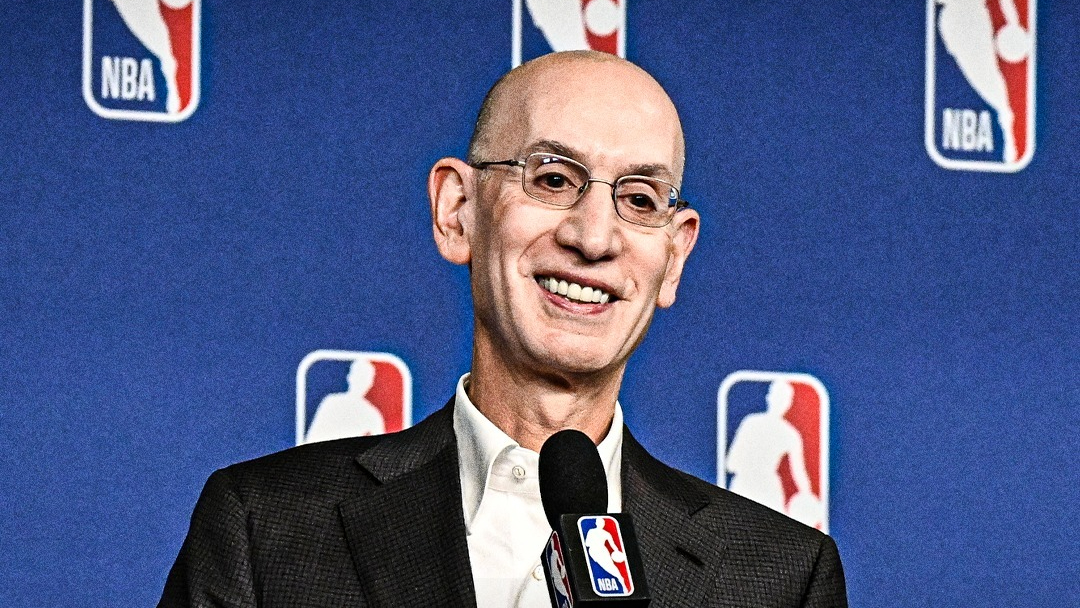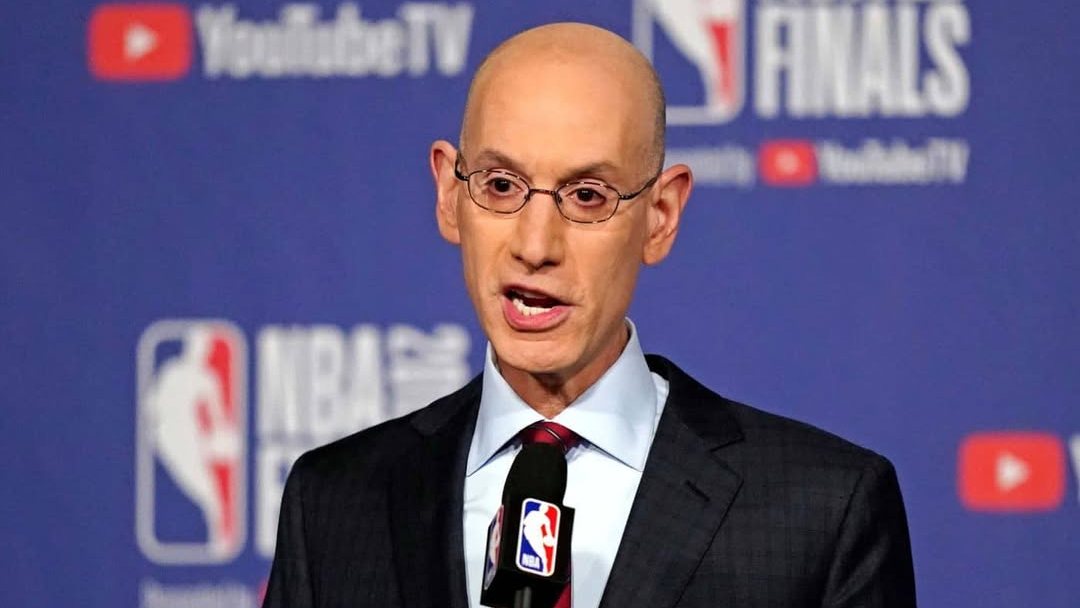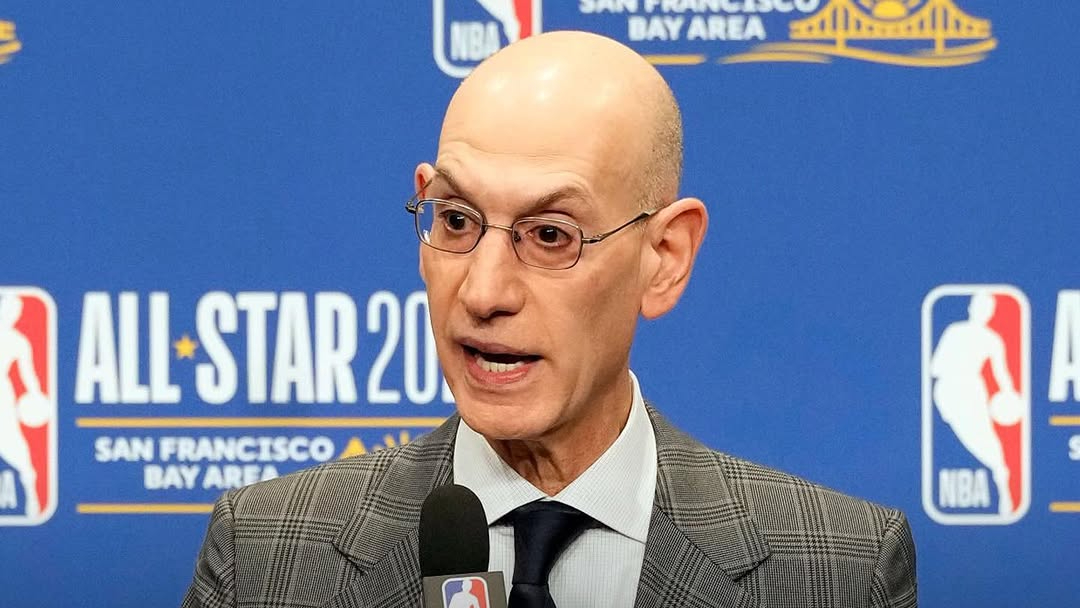Adam Silver’s Stand for Activism and Mental Health in the NBA
In a time when athletes are expected to be more than just competitors—when they are voices for justice, faces of brands, and symbols of resilience—Adam Silver has become a rare kind of sports leader: one who embraces that evolution.
Since becoming NBA Commissioner in 2014, Silver has redefined what leadership looks like in professional sports. He’s not just managing basketball; he’s fostering a culture that supports mental well-being and social impact, recognizing that athletes are people first.
1. Supporting Player Activism, Not Silencing It
Under Adam Silver, the NBA became the first major sports league to embrace—not punish—player activism.
When players knelt during the national anthem, wore “I Can’t Breathe” shirts, or spoke out on social justice issues, Silver didn’t hand out fines or issue warnings—he stood beside them.
During the height of the Black Lives Matter movement, the league allowed—and encouraged—players to wear social justice messages on their jerseys. Court designs in the NBA Bubble featured powerful slogans. Entire playoff games were postponed in protest of police brutality, and Silver backed it.
“These are not just basketball players. They are American citizens who feel compelled to speak out,” Silver said in 2020.
His approach wasn't just about optics—it was about values. While other leagues scrambled to manage controversy, Silver’s NBA embraced its players’ voices, setting a new standard for how sports and social progress can coexist.
Related: The $64 Million Man: Inside the Power and Pay of NFL Boss Roger Goodell
Related: How Adam Silver Took Over the NBA and Changed Everything

2. Pioneering Mental Health in Pro Sports
Long before mental health became a trending topic, Adam Silver was sounding the alarm. In 2018, he made headlines by saying many NBA players were "genuinely unhappy" despite their fame and wealth.
It was a watershed moment. A league commissioner openly acknowledging the emotional burden of stardom? Unheard of.
Silver worked with the NBPA (Players Association) to implement new mental health policies, including:
-
Mandatory access to licensed mental health professionals on every team
-
Confidential counseling services for players and staff
-
Encouraging stars like Kevin Love and DeMar DeRozan to speak publicly about their struggles
These weren’t just wellness initiatives—they were cultural shifts. By bringing mental health into the spotlight, Silver helped dismantle the stigma that surrounds emotional vulnerability in sports.
Related: Roger Goodell’s Top 5 Scandals and Worst Business Moves
3. Why Mental Health Matters in Sports
In high-stakes professional leagues like the NBA, athletes are under enormous pressure—on the court, in the media, and online.
Without proper support, these stressors can lead to anxiety, depression, burnou t, and even early retirement. Silver’s commitment to mental health isn’t just about compassion—it’s good leadership. A mentally healthy player is a better performer, a longer-tenured pro, and a better ambassador for the league.
What Silver understood—long before many others—is that mental fitness is just as important as physical training. His policies have since influenced other leagues, from the NFL to international soccer.

4. A New Model for Sports Leadership
Adam Silver doesn’t yell. He doesn’t punish to assert power. He listens, adapts, and leads with empathy. In doing so, he’s rewriting the job description for a sports commissioner.
He has built trust with players not by controlling them, but by empowering them—whether that means speaking out on injustice, taking a mental health break, or calling for change within the league itself.
While other leagues still wrestle with their identity, Silver’s NBA is setting the tone for what modern sports can be: inclusive, aware, human-first.
Conclusion
Mental health in sports isn’t a luxury. It’s a necessity for players, coaches, staff, and everyone who works behind the scenes to make the show go on. Adam Silver’s efforts have been groundbreaking, but let’s be honest: it’s still not enough.
Too many leagues still treat mental health like a PR checkbox instead of the life-or-death issue it can be. Players are expected to perform like machines, while hiding the very human struggles they carry in silence. Coaches are praised for grit, even if they’re burning out. Staff are told to keep up, regardless of stress or toxic environments. We need routine mental health checks, not reactive ones after a public breakdown. We need licensed professionals on every team, just like physical trainers. We need to normalize the conversation—not just during Mental Health Awareness Month, but every single season.









